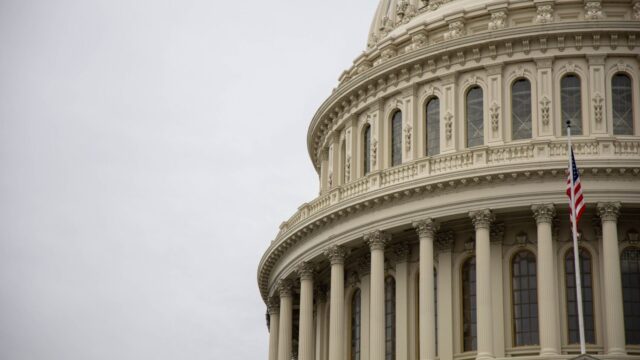Coalition Urges $102.5 Million in Funding for REACH
May 2022

May 26, 2022
The Honorable Patty Murray
Chair
Subcommittee on Labor, Health and Human
Services, Education and Related Agencies
Committee on Appropriations
U.S. Senate
The Honorable Roy Blunt
Ranking Member
Subcommittee on Labor, Health and Human
Services, Education and Related Agencies
Committee on Appropriations
U.S. Senate
Dear Chairwomen DeLauro and Murray and Ranking Members Cole and Blunt:
The undersigned 38 organizations and communities working to promote the health of all individuals urge you to provide at least $102.5 million in the fiscal year (FY) 2023 Labor, Health and Human Services, and Education Appropriations bill for the Centers for Disease Control and Prevention’s Racial and Ethnic Approaches to Community Health (REACH) program. More specifically, we request $75.5 million for CDC’s REACH grant program and $27 million for its affiliated program Good Health and Wellness in Indian Country (GHWIC) to address the disproportionate impact of chronic disease on racial and ethnic populations in urban, rural, and tribal areas.
Since 1999, REACH has been a model CDC program using community-level strategies that are evidence-based or evidence informed to eliminate racial and ethnic health disparities in chronic disease and related risk factors
The higher rates of hospitalization and mortality for COVID-19 among individuals with certain underlying medical conditions underscore the importance of working toward a country where everyone can live healthier lives. Furthermore, the racial and ethnic disparities that characterize COVID-19 and obesity are a sharp reminder of the effects that underlying social, economic, and environmental conditions and structures can have on health and well-being at the individual, family, neighborhood, and national levels.
Since 1999, REACH has been a model CDC program using community-level strategies that are evidence-based or evidence informed to eliminate racial and ethnic health disparities in chronic disease and related risk factors (i.e., tobacco use, poor nutrition, and physical inactivity). Key REACH outcomes during the first 2 years of the current REACH cycle (October 2018 to September 2020):
- 39,361 people impacted by healthy nutrition standards implemented in community settings;
- 415,101 people impacted by new or enhanced places providing access to healthier foods;
- 894,359 people impacted by new or improved breastfeeding support programs;
- 6,322 patients linked to community-based services by their health care providers;
- 1,013,589 employees work in settings with new smoke-free and tobacco-free policies.
We thank the L-HHS Subcommittee for funding REACH at $65.95 million for FY 2022, enough to support 40 communities across the nation. While we are grateful for the support, it still falls short of being able to fund a program in all 50 states and U.S. territories. Moreover, in the latest round of REACH applications, there were 264 approved but unfunded applications, demonstrating the significant demand and need for culturally tailored and community driven programs such as REACH.
Since FY 2017, the Healthy Tribes program, also known as Good Health and Wellness in Indian Country (GHWIC) grant program, has worked with American Indian/Alaska Native (AI/AN) tribal organizations to promote health, prevent disease, reduce health disparities, and strengthen connections to culture and lifeways that improve health and wellness. Congressional funding in FY 2022 included $22.5 million for GHWIC. However, funds from REACH that support GHWIC only fund 12 tribes directly and support other tribes by funding 4 Urban Indian Health Centers and 12 Tribal Epidemiology Centers (TECs). This program continues to support healthy behaviors in Native communities by supporting coordinated and holistic approaches to chronic disease prevention. In addition, as CDC’s largest investment in AI/AN health, the Healthy Tribes program provides resources for tribal communities to create culturally appropriate and effective public health approaches that expand the program’s reach and impact by working with tribal organizations, including Urban Indian Organizations.
We are urging Congress to fund at least $102.5 million in the FY 2023 Labor, Health and Human Services, and Education Appropriations bill, including $75.5 million to allow the REACH program to add an additional 33 programs. In addition, we request GHWIC to be funded at $27 million to expand Tribal Epidemiology Centers for Public Health Infrastructure and continue the program’s important work.
Thank you for your consideration of this request and your support for the elimination of racial and ethnic health disparities to create a healthy and equitable future for all communities.
Sincerely,
Academy of Nutrition and Dietetics
Access to Wholistic and Productive living Inc
American Association of Colleges of Nursing
American Association on Health and Disability
American Heart Association
American Indian Health Commission for WA State
American Lung Association
American Physical Therapy Association
American Psychological Association
American Public Health Association/CDC Coalition
Association of Minority Health Professions Schools (AMHPS)
Association of Public Health Laboratories
Association of State Public Health Nutritionists
Big Cities Health Coalition
Common Threads
Endocrine Society
Foundation for Healthy Generations
Habilitative Systems, Inc.
Hogg Foundation for Mental Health
Integrative Health Policy Consortium
Kansas Breastfeeding Coalition
Lakeshore Foundation
MaryCatherine Jones Consulting, LLC
Mississippi Public Health Institute
National Association of County and City Health Officials
National Kidney Foundation
National Women’s Health Network
Nebraska Center for Healthy Families
NJ Public Health Association
Prevent Blindness
Prevention Institute
Red Star International, Inc.
Redstone Center, GWU
Regional Asthma Management and Prevention
Rhode Island Executive Office of Health & Human Society for Public Health Education
The Praxis Project
YMCA of the USA